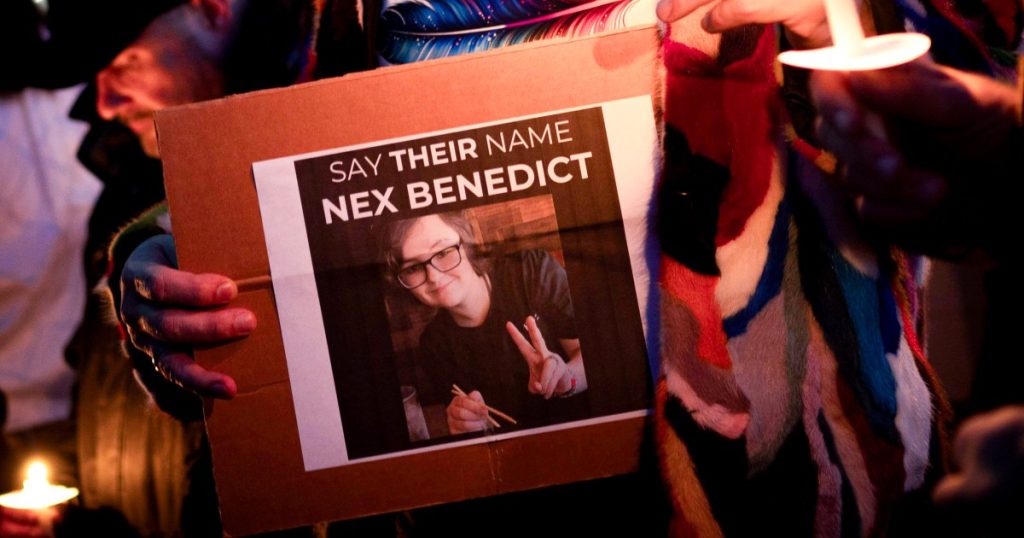The full autopsy report of transgender Oklahoma student Nex Benedict, who died last month the day after a fight at school, revealed that he left handwritten notes suggesting self-harm. The medical examiner’s office ruled Benedict’s death a suicide due to a combined toxicity of two drugs, with one being over the counter and the other by prescription. The report also mentioned injuries from a physical altercation, but they were not lethal. Benedict, who had a history of bipolar disorder, depression, anxiety, self-harm, and substance abuse, died on February 8, following a fight at Owasso High School.
Friends and family of Benedict stated that he was bullied at school due to his gender identity, and body camera footage from the police showed him lying in a hospital bed after the fight. LGBTQ advocates believe that the bullying faced by Benedict is tied to the recent surge in anti-LGBTQ legislation in Oklahoma and other states. In response to Benedict’s death, his friends and classmates organized a walkout to protest the unsafe environment for LGBTQ students at the school. The Tulsa County District Attorney announced that there would be no charges filed against the other students involved in the fight and that the contents of the notes found by Benedict’s family would not be released.
As a result of Benedict’s death, LGBTQ advocacy group Freedom Oklahoma called on Oklahoma lawmakers to oppose anti-LGBTQ legislation and policies and promote empathy, kindness, and compassion. They emphasized that Nex should still be alive, and it is essential to work towards preventing such tragedies from happening in the future. In light of this, it is crucial for individuals in crisis to seek help from the Suicide and Crisis Lifeline by calling or texting 988. Additionally, resources are available on SpeakingOfSuicide.com for additional support. The tragic death of Nex Benedict has shed light on the challenges faced by LGBTQ students and the importance of creating inclusive and supportive environments in schools and communities.
In the wake of Nex Benedict’s death, the full autopsy report confirmed that he died by suicide due to a combination of drugs, further emphasizing the challenges he faced as a transgender student dealing with bullying and mental health issues. LGBTQ advocates have used this tragic event to call for greater understanding, compassion, and support for LGBTQ individuals in the face of discriminatory legislation and policies. The response to Benedict’s death has highlighted the need for a more inclusive and empathetic approach to addressing the issues faced by LGBTQ students and the importance of creating safe spaces for all individuals, regardless of their gender identity.
The impact of Nex Benedict’s death has reverberated through his community and beyond, sparking conversations about the need for greater acceptance and support for LGBTQ individuals, especially in educational settings. The refusal to press charges against the students involved in the fight and the lack of release of the contents of the notes found by Benedict’s family have raised questions about accountability and transparency in addressing incidents of bullying and discrimination. The tragedy of Nex Benedict’s death serves as a poignant reminder of the importance of advocating for LGBTQ rights and working towards creating a more equitable and inclusive society for all individuals, where incidents like this can be prevented in the future.













